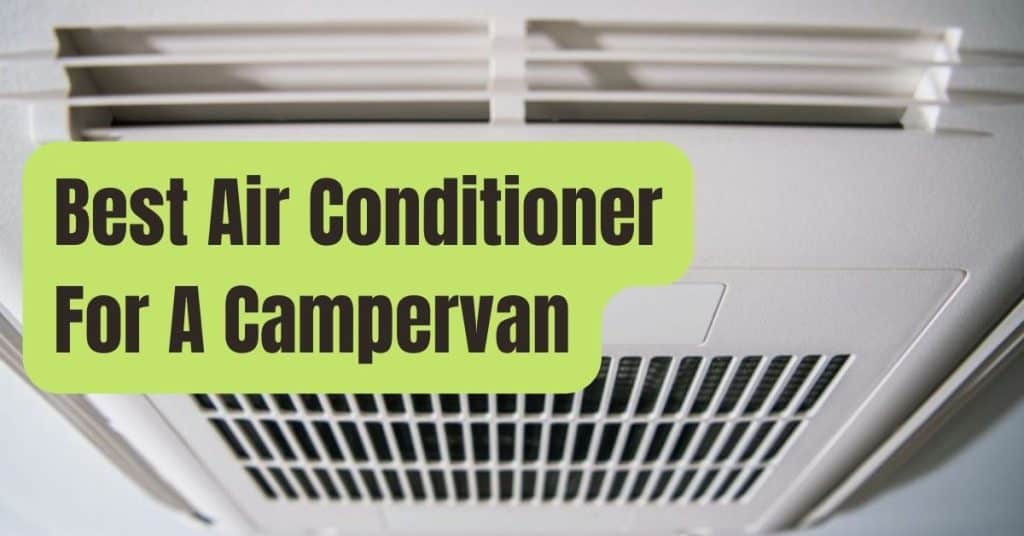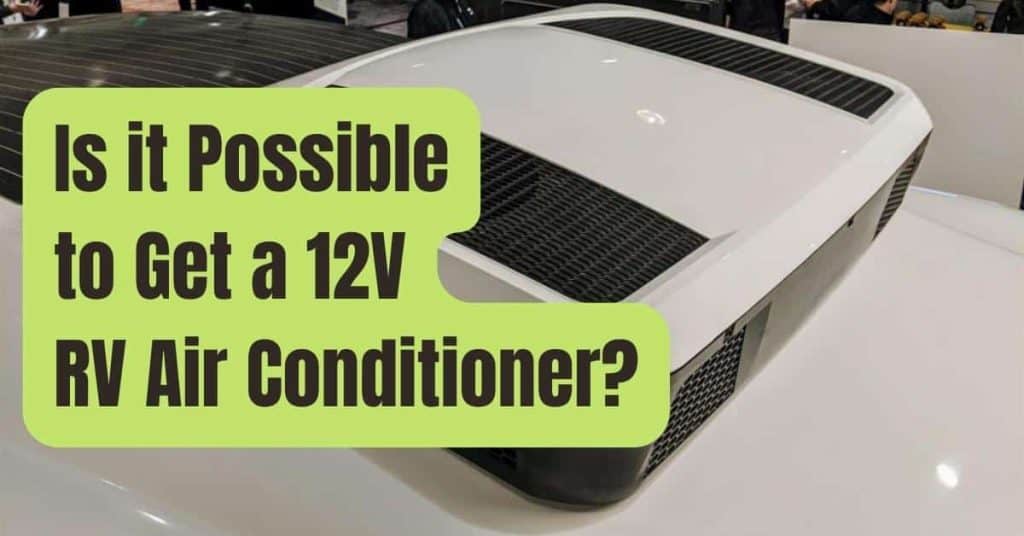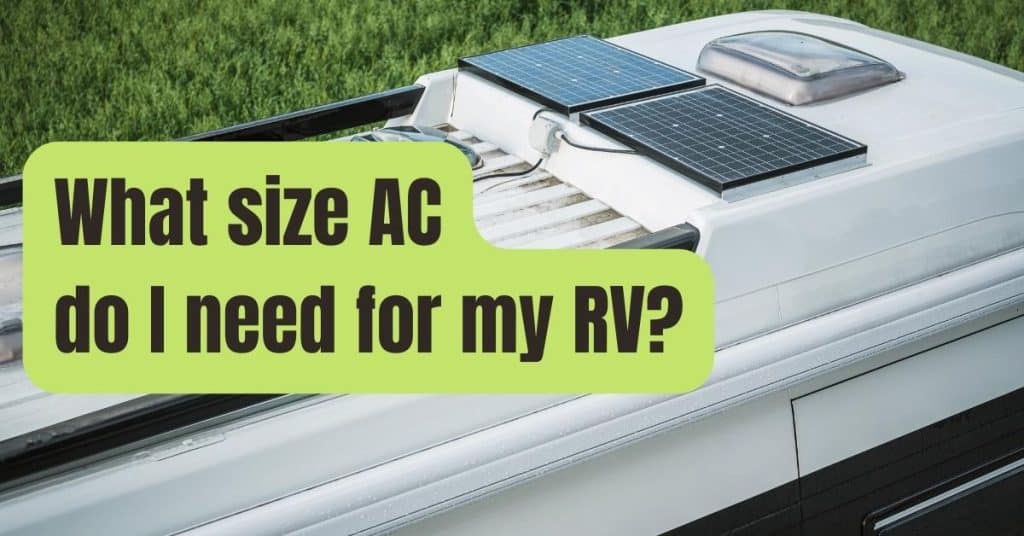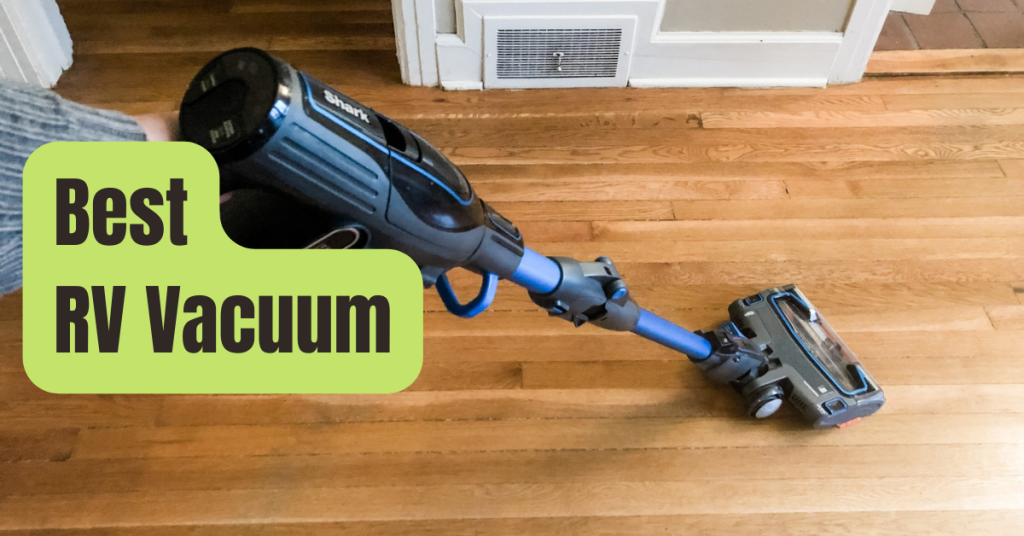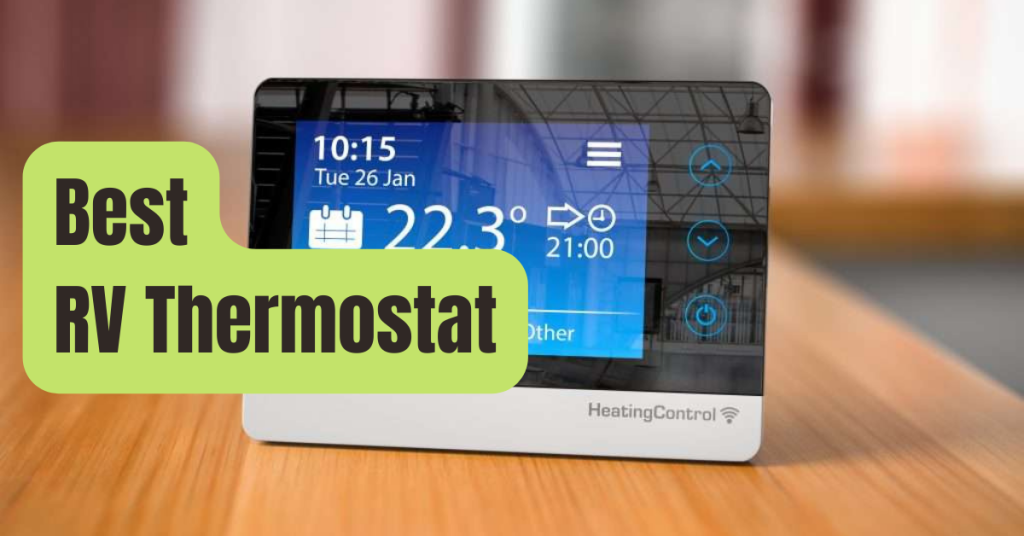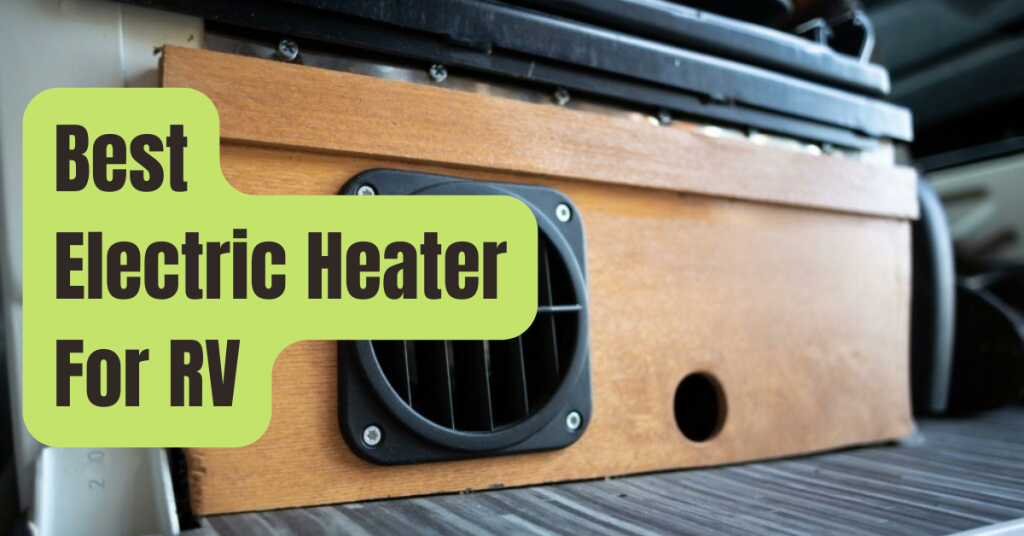Sometimes you want to boondock or camp in an area where there is no power.
Some folks are asking how long an RV air conditioner can operate.
From my RV, I’ve learned the following:
As long as you have fuel in your tank, you may operate your RV air conditioner off of your generator.
Because generators use so little gas, many individuals will leave their air conditioning running all night.
But there’s a lot more to know about using the air conditioner in your RV than that!
Just a week ago, we were stranded in a Walmart parking lot. We turned on the heat since it was cold outside.
It was on the whole night (both of them).
My tank had just been full before parking, and I couldn’t tell whether it had moved when I checked the gauge the next morning.
That’s how efficient the generator is with fuel (and the fridge was powered off of it too).
But we’ll explain how it works and how you can figure out how long yours will last.
Continue reading!
In southern Brittany, it was warm enough for shorts and air conditioning yesterday. With the sliding door wide open, I’m still wearing shorts.
https://t.co/Pct8Wge2Qu
VicariousView #vanlife #Bretagne #weather #sunshine #summer #France #travel #camper #campervan #motorhome #ontheroad #VicariousView #vanlife #Bretagne #weather #sunshine #summer

Is it possible to leave my RV’s air conditioner on all night?
Yes.
If you have a generator or are connected to a 50 amp connection where you are parked, you may operate your RV air conditioner all night.
In addition, most generators can operate your air conditioner all night long while using very little fuel.
However, if you have a roof air conditioner, as you most likely have, you may be shocked at how ineffective it is.
Even if it’s operating well, roof air conditioners can only chill the inside temperature by roughly 20 degrees.
If you live in a very hot climate, you’ll want your air conditioning to run at maximum efficiency.
There are a few things you can do to improve the effectiveness of your RV air conditioner.
Check to see whether your filters are clean and clear. An air compressor may be used to blast them out.
- Alternatively, they may be gently cleaned in lukewarm water with a moderate detergent. Rinse well and let aside to dry overnight.
- Make that the air return is also free of obstructions.
- Check for clogged or pinched condenser coils. This guarantees that hot air is blown outside by the fan.
- Make that the device is receiving at least 115 volts of AC power. The item will still work, although not at full capacity, at a lower voltage.
- During the day, shutter the windows and close the blinds. This allows as much cold air as possible to enter. It also helps to keep the heat at bay.
- Finally, and maybe most importantly, park in the shade. Getting out of the sun reduces the amount of work your unit has to do. It also implies that your computer will get cooler.
To summarize, if you want to run your RV air conditioner all night, make sure it’s well maintained and you park in the shade.
This will enable the air conditioner to work as hard as it needs to without overworking itself.
Read more: How to Use an RV Air Conditioner?

Is it possible to operate an RV air conditioner from the battery?
No. An air conditioner will not be able to work on battery power in most RVs.
While many RVs have more than one battery, this is usually insufficient to run an air conditioner, and many RVs have two or more.
Just to turn on the air conditioner, a lot of power is required. It also consumes a significant amount of power to stay operating for just an hour.
A 15,000 BTU air conditioner is standard on most contemporary RVs. To get started, these machines need a minimum of 3,500 watts. It needs roughly 1,500 watts to keep it operating after that.
An inverter is not included in most RVs. And the ones that do have an inverter with a power range of 1,000 to 2,000 watts.
This is insufficient wattage to convert your battery power to useful AC power. You’ll need a 4,000-watt DC-to-AC power converter at the very least.
Power inverters are only found in higher-end fifth-wheel trailers, Class A motorhomes, and higher-end Class B vans.
And the majority of them have two or three air conditioners. To start and operate the air conditioning, you’ll need a power inverter with a wattage of up to 7,000.
You’ll need three 100 AH (amp-hour) Lithium Ion-Phosphate batteries, roughly 1,500 watts of solar panels, and a 7,000-watt power converter to operate your air conditioning on battery power.
For roughly one hour, this would operate two 15,000 BTU air conditioners. You’ll need roughly eight lithium batteries to obtain 8 hours of operating time. That’s a total of 240 pounds of batteries.
Solar panels will be required to replenish the batteries.
My husband is the greatest. Our rv’s air conditioner is acting up, so he goes on a fan quest. This is all he could locate, but wow are they good.
tanya rolls
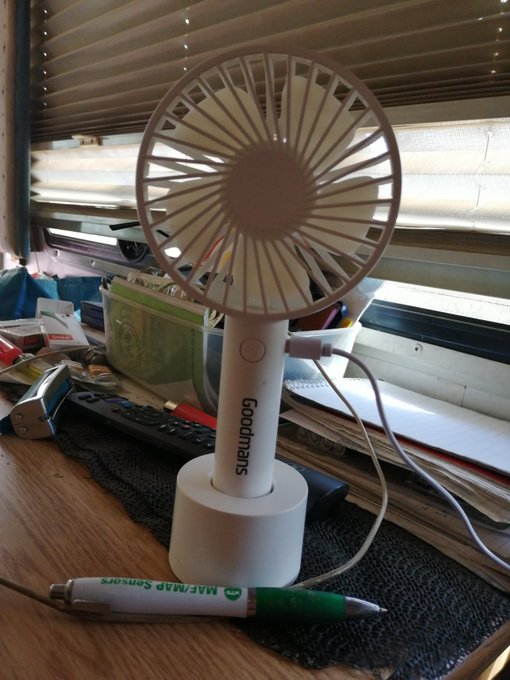
Is it possible to operate my RV’s air conditioner on 110 volts?
An RV air conditioner may technically be powered by 110 volts. Most, on the other hand, are hardwired into the RV and cannot simply be plugged into a 110v outlet. The majority of RVs are intended to be linked to the campground’s 50 amp or 30 amp hookups.
However, there are a few things to keep in mind while utilizing 110.
To begin, you need understand how RV power works. Typically, AC is used in houses, whereas DC is used in cars. Fortunately, most RVs come equipped with both DC and an AC connection mechanism, which may be used when connecting into a house outlet.
15 amps is the usual domestic electrical outlet. This means you’ll need a 30 amp adaptor, such as this one from Amazon, to acquire the full 30 amps your air conditioner requires.
If your RV air conditioner has an accessible connection, it’s preferable to use a heavy-duty extension cord to connect to the 110v outlet. Not only would using the improper kind of cable provide a fire danger, but it will also fail to draw the required amperage.
Read more: What size AC do I need for my RV?
Second, turn the air conditioner down to the lowest level.
Roof air conditioners use 12-16 amps on average. When it comes on, it may suck up to 7 times the amount of current it does when it’s simply running. It should be set to the lowest level to prevent harm to your RV or house from the A/C kicking in.
Finally, the air conditioner should be the only item on. While the air conditioning is operating on a house outlet, don’t do anything else in the RV.
This is why you need it right now. And ours is in fantastic functioning order! #aircon #rimor #motorhome #hottestdayoftheyear
Go Explore Scotland

What is the average amount of gas used by an RV air conditioner?
You can operate your RV’s air conditioner on a generator for 8 hours and consume no more than 2 gallons of gas. Diesel generators use even less fuel than unleaded gas generators.
You may use a portable generator if you’re camping off the grid or don’t want to operate your air conditioner on power. Unlike utilizing a 110 plug, portable generators allow you to power more than just the air conditioning.
Diesel, LP, and gasoline are the three most prevalent kinds of generators.
Of course, the heavier the weight, the more gasoline you’ll use. So if you just want to operate the air conditioner, you won’t waste as much energy as if you also want to run the refrigerator, coffee machine, and television.
There are a few things to think about before buying an RV.
Diesel generators are more environmentally friendly than gasoline or propane generators. In an RV, both diesel and unleaded generators will normally utilize the same gas tank as the vehicle’s engine.
Propane and diesel engines may last 1,000 hours or more if they are properly maintained.
You should also think about flammability. The most flammable fuels are gasoline and propane, whereas diesel is the least flammable.
Noise levels should also be considered. Propane generators are the quietest, while diesel generators are the most raucous.
However, I can verify that when the generator is turned on and the windows are closed, the generator noise is quite low in any contemporary RV.
This is an excellent opportunity to fix your RV air conditioner before you need it this year. #rvrepair #rvairconditioning #rvairconditioner #texas #bellville #houston #camping #rvrepair #rvrepair #rvrepair #rvrepair #rvrepair #rvrepair #rvrepair #rvrepair
madrvrepair

Is it possible to drive with an RV air conditioner on?
Yes. While driving, you may utilize the dash air conditioner as well as the rooftop air conditioner. As long as the engine is running, the dash air conditioning may operate continuously. To give electricity to the rooftop air conditioner, the generator must be turned on.
In fact, running your air conditioning while driving may be beneficial.
If your generator isn’t utilized enough, it will break down or require repairs more often, just like any other motorized device.
Except when we are camped at a campground with connections, my family uses the generator practically all of the time. That’s because my girls not only prefer to watch TV while I’m driving, but also because the fridge runs on the generator unless we’re linked to the grid.
Because campgrounds supply power, users often underutilize their generators. As a result, utilizing it while driving may help maintain it in excellent operating condition.
Read more: Can You Recharge Your RV Air Conditioner and How Do You Do It?
Finally, some ideas
When utilizing electricity or your generator, you may operate your RV air conditioner for extended periods of time, even all night.
If you really want to operate your RV air conditioner on battery power, you’ll need a complex setup that includes Lithium-Ion Phosphate batteries, solar panels, and a power converter.
A 110 outlet may be used to power the air conditioner. Simply be cautious and follow the correct procedures. If you wish to camp in hot places and utilize the air conditioning, you’ll need a generator.
Consider using your generator while you’re driving to maintain it in excellent working condition.


